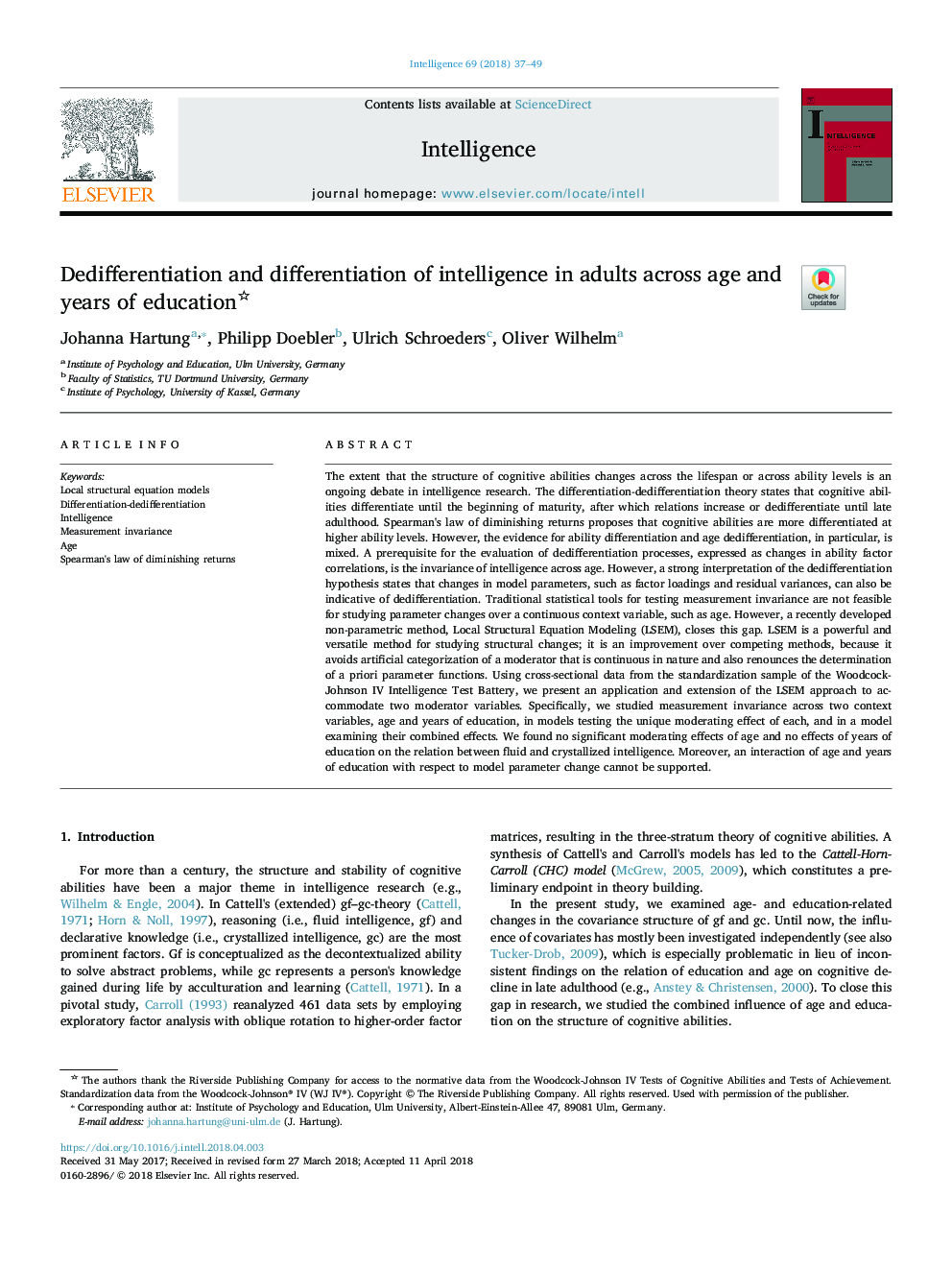| کد مقاله | کد نشریه | سال انتشار | مقاله انگلیسی | نسخه تمام متن |
|---|---|---|---|---|
| 7292698 | 1474247 | 2018 | 13 صفحه PDF | دانلود رایگان |
عنوان انگلیسی مقاله ISI
Dedifferentiation and differentiation of intelligence in adults across age and years of education
ترجمه فارسی عنوان
تشخیص و تمایز هوش در بزرگسالان در طول سن و سال تحصیل
دانلود مقاله + سفارش ترجمه
دانلود مقاله ISI انگلیسی
رایگان برای ایرانیان
کلمات کلیدی
موضوعات مرتبط
علوم انسانی و اجتماعی
روانشناسی
روانشناسی تجربی و شناختی
چکیده انگلیسی
The extent that the structure of cognitive abilities changes across the lifespan or across ability levels is an ongoing debate in intelligence research. The differentiation-dedifferentiation theory states that cognitive abilities differentiate until the beginning of maturity, after which relations increase or dedifferentiate until late adulthood. Spearman's law of diminishing returns proposes that cognitive abilities are more differentiated at higher ability levels. However, the evidence for ability differentiation and age dedifferentiation, in particular, is mixed. A prerequisite for the evaluation of dedifferentiation processes, expressed as changes in ability factor correlations, is the invariance of intelligence across age. However, a strong interpretation of the dedifferentiation hypothesis states that changes in model parameters, such as factor loadings and residual variances, can also be indicative of dedifferentiation. Traditional statistical tools for testing measurement invariance are not feasible for studying parameter changes over a continuous context variable, such as age. However, a recently developed non-parametric method, Local Structural Equation Modeling (LSEM), closes this gap. LSEM is a powerful and versatile method for studying structural changes; it is an improvement over competing methods, because it avoids artificial categorization of a moderator that is continuous in nature and also renounces the determination of a priori parameter functions. Using cross-sectional data from the standardization sample of the Woodcock-Johnson IV Intelligence Test Battery, we present an application and extension of the LSEM approach to accommodate two moderator variables. Specifically, we studied measurement invariance across two context variables, age and years of education, in models testing the unique moderating effect of each, and in a model examining their combined effects. We found no significant moderating effects of age and no effects of years of education on the relation between fluid and crystallized intelligence. Moreover, an interaction of age and years of education with respect to model parameter change cannot be supported.
ناشر
Database: Elsevier - ScienceDirect (ساینس دایرکت)
Journal: Intelligence - Volume 69, JulyâAugust 2018, Pages 37-49
Journal: Intelligence - Volume 69, JulyâAugust 2018, Pages 37-49
نویسندگان
Johanna Hartung, Philipp Doebler, Ulrich Schroeders, Oliver Wilhelm,
